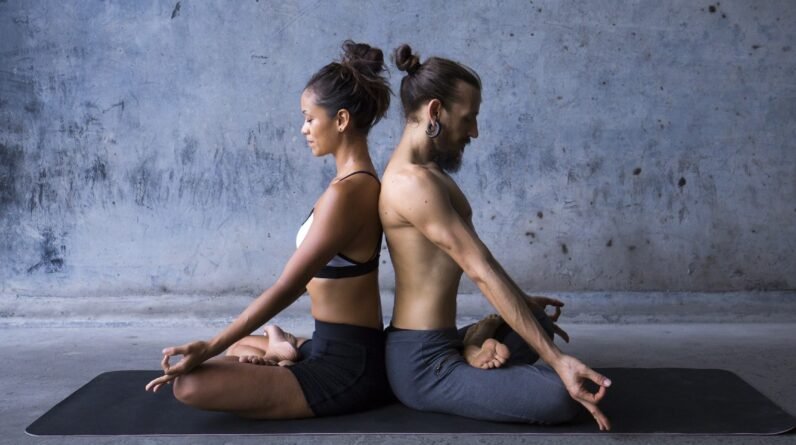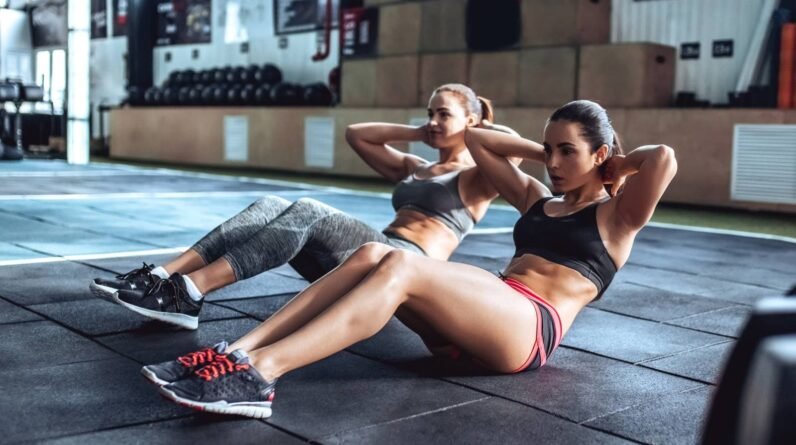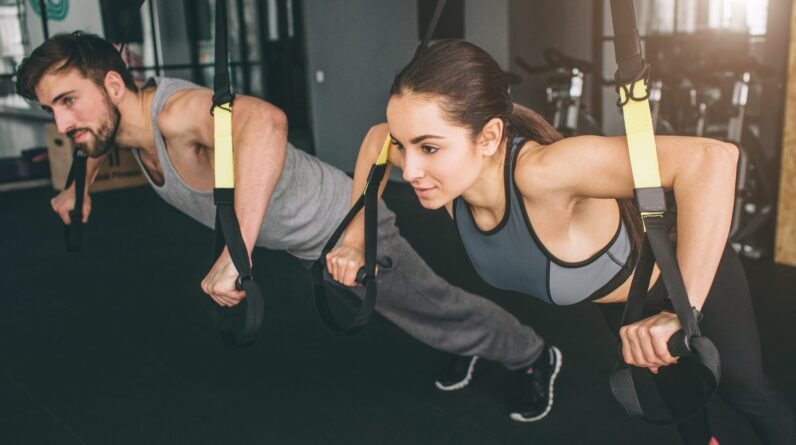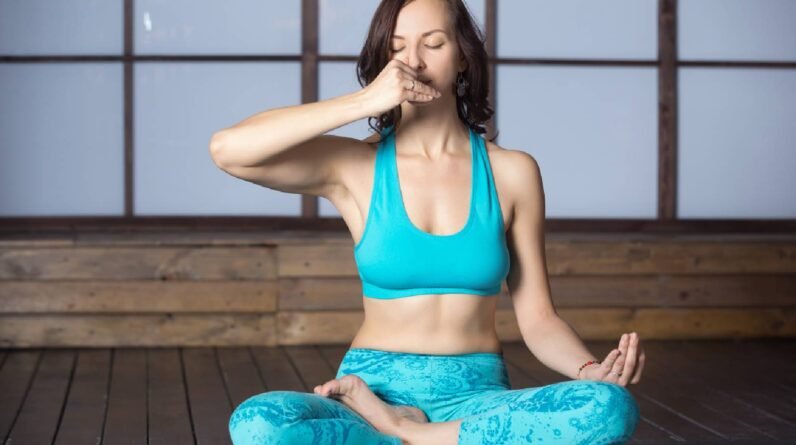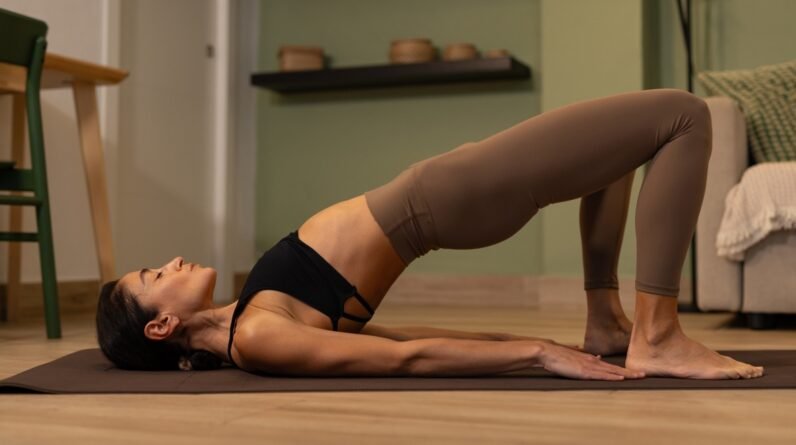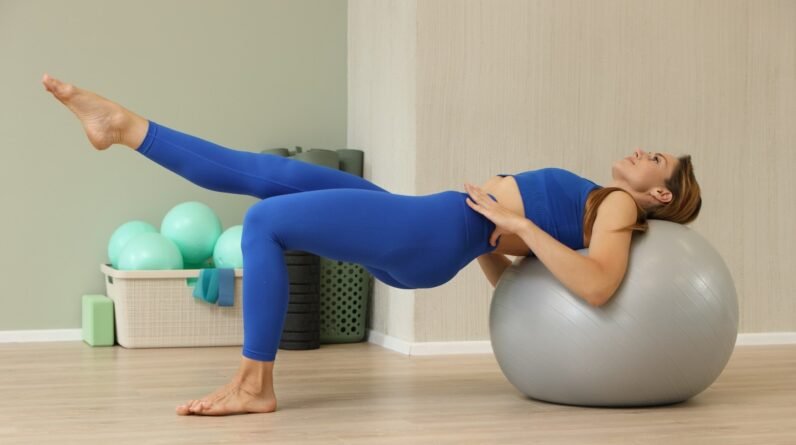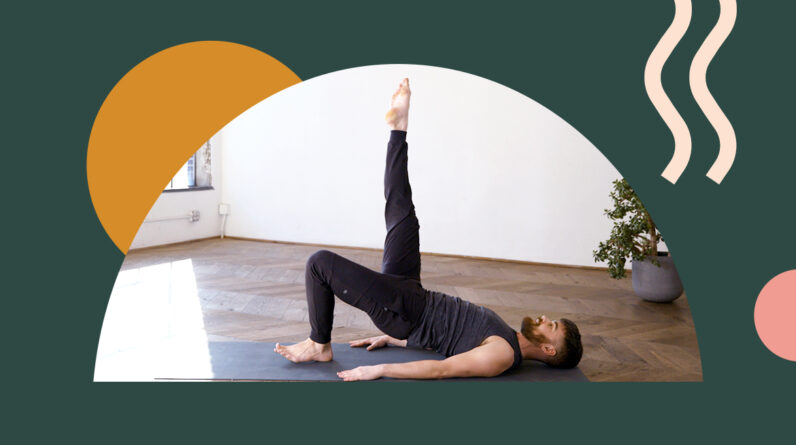
Whenever the lie-down-on-your-side portion of a Pilates mat class comes around, I always breathe a sigh of relief. Even though I know moves like clamshells and leg lifts will leave my glutes and inner and outer thighs burning, just the fact that I’m lying down on my side—a pose not so dissimilar from the one I take while chilling the F out—feels like a little break.
Well, sorry to burst my own bubble, but it’s possible that I could be literally slouching off during this series, and not getting the most out of the moves. Maintaining core engagement and hip and pelvic stability throughout is crucial to actually working our leg muscles, and not putting too much pressure into our joints.
There are two ways you can set yourself up for success in these moves.
1. Align your elbow directly below your shoulder
When you’re up on your elbow (rather than lying all the way down with your ear on your upper arm), make sure that your shoulder is right over your forearm, says East River Pilates instructor Brian Spencer. Sometimes people will put their elbows a little further away, which can make for some awkward curvature in your upper body during these moves.
“We tend to slouch down like we’re watching Netflix,” Spencer says. “We want to really get support from your shoulder so we can keep good posture and alignment of the spine and hips.”
2. Keep your top and bottom hips directly in line
The position of the other touchpoint of your body to the mat—your hips—can also make or break your form. The key is keeping your top hip wrapping forward, not sagging back, so that your bottom and top hip are directly in line with each other vertically. This can be difficult to maintain: It’s super tempting to lean back. But Spencer has a tip for ensuring your hips stay in line: “A great way to maintain pelvic stability is to find two different forces at once,” he says. “So a push and pull, or a press and a lift. That way one side of your hip isn’t doing nothing, and the other one doing a lot.”
What does that look like? Push down in the supporting foot or leg as you lift the working one. Or think of bringing the top hip forward whenever the weight your leg tries to pull it back.
These tips come to you from the side-lying portion of a new 20-minute lower-body focused Pilates series from Spencer for Well+Good’s Good Moves series. You’ll start with a thorough core, glutes, and thighs warm-up in a series of bridge poses. Then you’ll start the leg work in that side-lying position, before transitioning to kneeling, standing, and single-leg poses. You’ll end by coming back to lying on your side to work those inner thighs (and keep the work out of your hip flexors!), before ending in some scrumptious and much needed hamstring, hip, and quad stretches.


